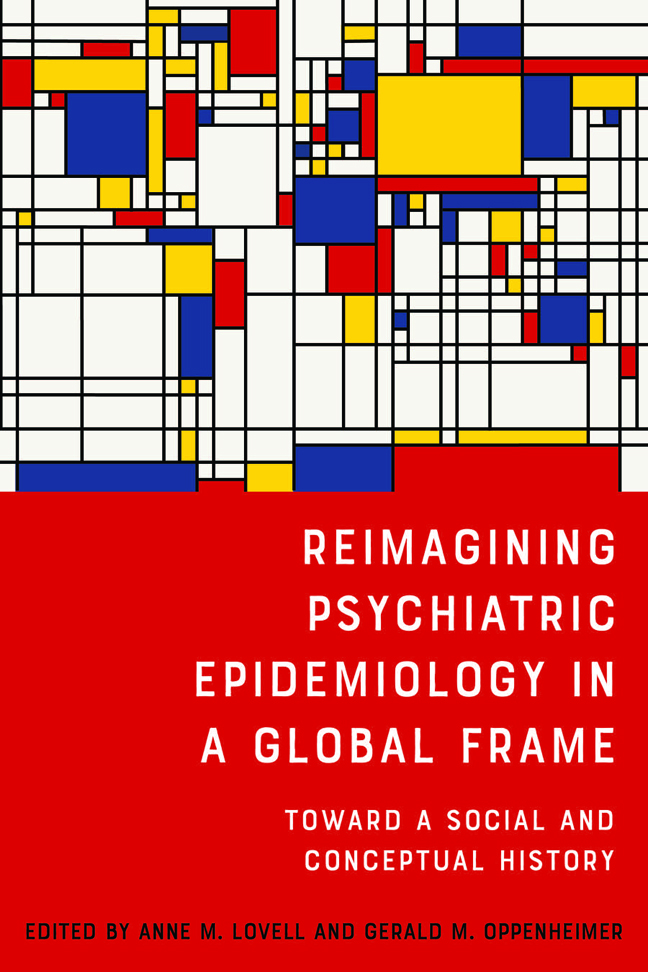Book contents
- Frontmatter
- Contents
- Acknowledgments
- Introduction
- Part One Constructing Mental Health Utopias and Dystopias with Epidemiology
- Part Two Troubling the Boundaries of Psychiatric Epidemiology
- Part Three Decentering Psychiatric Epidemiology in a Postcolonial World
- Selected Bibliography
- Notes on Contributors
- Index
Seven - Bringing Psychiatric Epidemiology to a Senegalese “Living Laboratory”: Knowledge-Production and Erasure in the Interstices of Science
Published online by Cambridge University Press: 15 February 2024
- Frontmatter
- Contents
- Acknowledgments
- Introduction
- Part One Constructing Mental Health Utopias and Dystopias with Epidemiology
- Part Two Troubling the Boundaries of Psychiatric Epidemiology
- Part Three Decentering Psychiatric Epidemiology in a Postcolonial World
- Selected Bibliography
- Notes on Contributors
- Index
Summary
Introduction
Commenting on the slow penetration of applied sciences in the global South, late twentieth-century academics and development actors labeled Africa the “latest of the late developers.” Three decades later, epidemiologists decried sub-Saharan Africa's psychiatric “epidemiology gap,” in an era when global health institutions constantly solicit numbers on the distribution, frequency, and determinants of mental disorders to construct metrics like the Global Burden of Disease (GBD). This uneven advancement of postwar psychiatric epidemiology within sub-Saharan Africa troubles the assumed space between expectations and the conceptual-material resources and political will necessary to meet them.
From the mid-1950s, a constellation of actors, including the World Health Organization (WHO), the World Federation of Mental Health, psychiatric leaders, and other experts, stressed the urgency for psychiatric services in “undeveloped” regions of the world. The landmark 1958 Bukavu conference (Belgian Congo) specifically focused on African psychiatry. At the WHO, experts debated whether to prioritize mental health statistics over services and whether an epidemiology of mental disorders was even possible, given the plethora of nosological and methodological conundrums encountered even in “developed” countries. In the early 1960s, the WHO consolidated a psychiatric epidemiology canon, disseminated through technical reports and international training sessions.
During the turbulent decolonization of Africa and emergence of nationstates, psychiatric experts, ideas, and epidemiological tools regarding mental disorders circulated between the North and South through networks including the WHO, the US National Institute of Mental Health, the UK Medical Research Council and Institute of Psychiatry, McGill University’s Section on Transcultural Psychiatry, and other First World research institutes and psychiatric associations. More rarely, psychiatric experts and knowledge flowed to the global North from countries like Nigeria, India, and Taiwan, evidence that some young nation-states, including in sub-Saharan African, were already engaged in psychiatric epidemiology.
This chapter analyzes the lesser-known trajectory of Senegal's first modern psychiatric epidemiology study, which wound in and out of the margins of these global flows of knowledge-production and dissemination. Directed by Henri Collomb (1913–1979), the celebrated founder of the pioneering psychiatric clinic and research group, the Ecole de Fann, in Dakar, Senegal’s capital, this study barely surfaces in the historiography of Senegal's scientific endeavors. Compared to other Fann clinic vestiges, it hardly attracted international attention. Hence, a legacy ignored: Senegal's only attempt to systematically ascertain in a population the prevalence of mental disorders with a standardized nosology.
- Type
- Chapter
- Information
- Reimagining Psychiatric Epidemiology in a Global FrameToward a Social and Conceptual History, pp. 214 - 249Publisher: Boydell & BrewerPrint publication year: 2022

